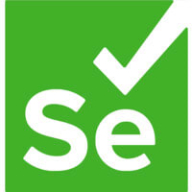

OpenText Functional Testing and Selenium HQ are two robust tools in the automation testing market. OpenText seems to have the upper hand in larger organizations due to its comprehensive features and vendor support, while Selenium HQ is favored for its cost-effectiveness and flexibility, particularly for smaller teams.
Features: OpenText Functional Testing offers powerful features such as comprehensive vendor support, extensive automation capabilities, and support for multiple platforms like Oracle and SAP. Selenium HQ provides features like open-source accessibility, flexibility with multiple programming languages, and support for cross-browser testing on major browsers.
Room for Improvement: OpenText may improve by reducing costs for smaller companies, improving ease of use, and expanding support beyond large enterprises. Selenium HQ could enhance its offerings with better user support, simplified integration for those without advanced programming skills, and improved documentation for beginners.
Ease of Deployment and Customer Service: OpenText Functional Testing requires a more complex deployment process but comes with substantial customer service and support. Selenium HQ offers easy deployment with excellent community support but lacks dedicated vendor service.
Pricing and ROI: OpenText is a paid solution with significant upfront costs, justified by its vast features and vendor support providing ROI for large-scale implementations. Selenium offers a strong ROI by eliminating licensing costs and providing a flexible, customizable toolset for diverse testing needs.
The development time using UFT can be cut down into half as compared to coding from scratch.
Automation is done very fast, leading to improvements in the QA process and reducing the time needed for test automation.
We can easily achieve a return on investment in one, two, or three years.
Organizations can't wait for this lengthy process, especially when they are under pressure with their timelines.
Support cases are easily created and attended to promptly, depending on urgency.
The technical support is rated eight out of ten.
The marketplace community and forums are what we browse and look after, and we have found solutions whenever we tried to find anything.
I have not had the need to escalate questions to Selenium HQ tech support recently, as open community support is widely available and has been sufficient for our needs.
Running them in parallel allows you to consume multiple runtime licenses and just execute the tests that don't have conflicting priorities and get through a lot of volume much quicker.
The tool can be installed on all computers used by developers or test automation engineers.
We can execute thousands of test cases weekly, and our automation coverage using Selenium HQ is approximately eighty-five percent.
One of the key stability issues was that Windows would consume memory without releasing it, leading to regression testing crashes.
Selenium HQ is a scalable solution; it has been in production for the last two years, but I have been working on it for the last six years, so it is definitely scalable.
Incorporating behavior-driven development tests would enhance the capabilities of UFT One.
We frequently encountered stability issues when the browser dependency caused Windows to consume memory without releasing it, leading to crashes during regression testing.
If it could move closer to a no-code or low-code solution, it might dominate the market again.
An automatic update mechanism for Selenium HQ would be beneficial, eliminating the need for manual downloads and updates of browser drivers when new versions are released.
I don't know if we have that capability to provide different data sources such as SQL Server, CSV, or maybe some other databases, so that kind of capability would be great.
There are many open-source tools with no cost, and there are no-code tools that are less expensive than UFT.
The pricing or licensing policy of OpenText is a bit expensive, however, it's one of the best solutions in the market.
It's cheaper than Tricentis Tosca but more expensive than some others.
UFT supports Oracle, SAP, PeopleSoft, and other non-web applications, making automation feasible.
OpenText Functional Testing has an impressive ability to connect to mobile devices and its ability to test so many different types of software, whether it be mainframe, APIs, mobile, web, or desktop.
The best features of OpenText Functional Testing include descriptive programming, the ability to add objects in the repository, and its ease of use for UI compared to other tools.
New features in Selenium HQ make object identification easier without reliance on XPath and CSS.
When we were doing these tests manually, it took several hours of effort, and those hours, when counted on the basis of person days, used to be maybe six or seven months of effort, which we can now do every day by running the pipeline.
| Product | Market Share (%) |
|---|---|
| OpenText Functional Testing | 8.4% |
| Selenium HQ | 3.4% |
| Other | 88.2% |


| Company Size | Count |
|---|---|
| Small Business | 20 |
| Midsize Enterprise | 13 |
| Large Enterprise | 71 |
| Company Size | Count |
|---|---|
| Small Business | 41 |
| Midsize Enterprise | 33 |
| Large Enterprise | 51 |
OpenText Functional Testing provides automated testing with compatibility across technologies, browsers, and platforms. It targets APIs, GUIs, and applications like SAP and Oracle for efficient test automation, emphasizing usability and integration with tools such as Jenkins and ALM.
OpenText Functional Testing offers wide-ranging automation capabilities for functional and regression testing, API testing, and automation across web, desktop, and mainframe applications. It supports script recording and object identification, appealing to less technical users. Despite its advantages, it grapples with memory issues, stability concerns, and a challenging scripting environment. Its VBScript reliance limits flexibility, generating demand for enhanced language support and speed improvement. Users appreciate its role in continuous integration and deployment processes, managing test data efficiently, and reducing manual testing efforts.
What are the key features of OpenText Functional Testing?In industries like finance and healthcare, OpenText Functional Testing is leveraged for end-to-end automation, ensuring streamlined processes and accuracy in testing. Many companies utilize it for efficient test data management and integrating testing within continuous integration/deployment operations.
Selenium HQ is an umbrella project that includes a number of tools and frameworks that allow for web browser automation. In particular, Selenium offers a framework for the W3C WebDriver specification, a platform- and language-neutral coding interface that works with all of the main web browsers.
Selenium is a toolset for automating web browsers that uses the best methods available to remotely control browser instances and simulate a user's interaction with the browser. It enables users to mimic typical end-user actions, such as typing text into forms, choosing options from drop-down menus, checking boxes, and clicking links in documents. Additionally, it offers a wide range of other controls, including mouse movement, arbitrary JavaScript execution, and much more.
Although Selenium HQ is generally used for front-end website testing, it is also a browser user agent library. The interfaces are universal in their use, which enables composition with other libraries to serve your purpose.
The source code for Selenium is accessible under the Apache 2.0 license. The project is made possible by volunteers who have kindly committed hundreds of hours to the development and maintenance of the code.
Selenium HQ Tools
These three main Selenium HQ tools have powerful capabilities:
Reviews from Real Users
Selenium HQ stands out among its competitors for a number of reasons. Two major ones are its driver interface and its speed. PeerSpot users take note of the advantages of these features in their reviews:
Avijit B., an automation tester at a tech services company, writes of the solution, “The driver interface is really useful. When we implement the Selenium driver interface, we can easily navigate through all of the pages and sections of an app, including performing things like clicking, putting through SendKeys, scrolling down, tagging, and all the other actions we need to test for in an application.”
Another PeerSpot reviewer, a software engineer at a financial services firm, notes, “Selenium is the fastest tool compared to other competitors. It can run on any language, like Java, Python, C++, and .NET. So we can test any application on Selenium, whether it's mobile or desktop."
We monitor all Functional Testing Tools reviews to prevent fraudulent reviews and keep review quality high. We do not post reviews by company employees or direct competitors. We validate each review for authenticity via cross-reference with LinkedIn, and personal follow-up with the reviewer when necessary.